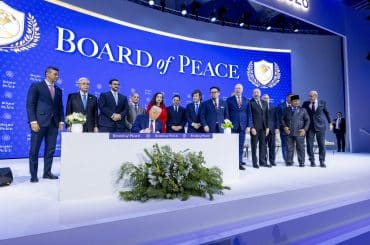Yesterday, the nation paused to remember the horrifying attacks of September 11, 2001, and the victims whose lives were cut short by the brutal calculations of those who place a higher value on their self-centered geopolitical theories than on human life. Well, at least one percent of the victims were so honored.
While the death toll of September 11 is officially 2977 not counting the 19 hijackers, with all the victims identified and their family histories and personal relationships accessible to the public, the true toll is far higher, and cannot be limited to the dead on “American soil.” Over the last decade, our response to that attack was to launch major wars of supposed retaliation in two countries that have taken many times the number of lives lost on 9/11. Unlike our own dead, we have no reliable count of the anonymous hundreds of thousands whose lives were cut short by our bombs, bullets and artificially imposed shortages of the necessities of life. Estimates of Iraqi dead range from about 100,000 to 1,000,000; those honored yesterday are a tiny fraction of those totals. In addition to the staggering number of corpses on our ledger, in Iraq alone, our aggression has caused millions(!) more to flee their homes in terror. Today, the killing continues unabated, and our wars have expanded into Pakistan, Yemen, Somalia.
And yet we remember only “our victims,” and not the much higher number of “victims of ours.” We painfully recall the heroic last acts of first responders, hear the desperate telephone messages of good people simply going about their daily business when they were suddenly confronted with their impending death, and tearfully sympathize with the struggles of those left behind to cope with their unimaginable losses. The necessary foundation of this national catharsis is a refusal to recognize that there is a similar heartbreaking story in every one of the human beings whose lives we have cut short halfway around the globe.
The mindset behind this is quite simple. We count and they don’t. This is all about what “they” did to “us” and never the other way around. The very moving Vietnam War memorial in Washington lists the 58,000 U.S. military victims of politicians’ folly while ignoring the millions of anonymous Southeast Asians killed defending their countries against our invasions or caught in the crossfire while desperately trying to escape it. Even legitimate and sincere antiwar activists often display such national bias. Many who attended antiwar rallies in the 1960’s and 70’s sported black armbands inscribed with numbers like 30,000, 40,000, 45,000, representing the approximate number of American soldiers killed at the time. Today one often hears criticism, heartfelt and sincere, of our ongoing wars only in terms of lost American servicemen and women and loss to the American treasury.
The worst consequence of this tunnel vision is its role in enabling the continuing carnage. We must establish ourselves as a “victim” rather than “aggressor” in order to adorn our military actions, by far the most destructive in the world over the past 65 years, with the imprimatur of righteous self-defense. But if we recognize equal value in the lives of a Cantor Fitzgerald broker or secretary and an Afghan villager or Iraqi doctor, we would be as repulsed by our own actions as we are by al-Qaeda’s. Politicians who swore not to commit such crimes would be elected in a landslide, and those responsible for “legalized” mass murder would serve the remainder of their days in a miserable prison. So we do not. Our dead are precious and their dead insignificant footnotes to what they force us to do to “them.”
There is no reason to believe this self-imposed myopia is peculiarly American. It is universally human. The Japanese have been stubbornly resistant to acknowledging the awful crimes their parents and grandparents committed against neighboring countries in the 1930’s and 1940’s. The Turks persecute and prosecute anyone who publicizes the crimes of their ancestors against Armenians nearly 100 years ago. One can add any number of examples to this list.
The sentiment on display yesterday – commemoration of a large number of our own dead while refusing to acknowledge our indefensible wanton slaughter of many more – is symptomatic of the evil we supposedly are trying to eradicate. Indifference to the suffering of others is an awful human characteristic, made far worse when we are indifferent to human suffering we are actually causing and are able to stop.

